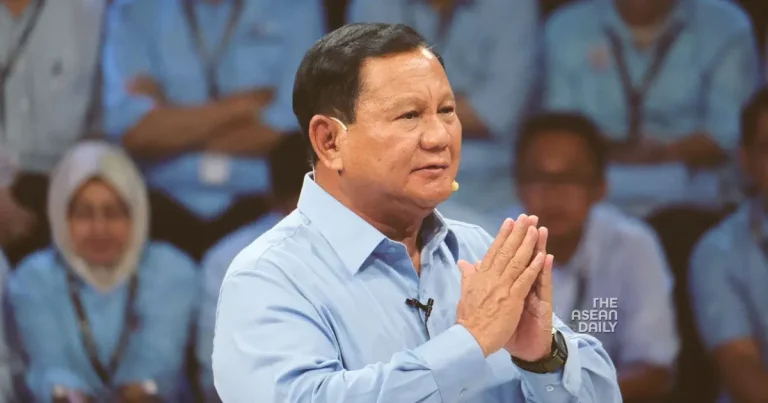5-2-2024 (JAKARTA) Indonesia’s presidential frontrunner, Prabowo Subianto, faced criticism during his final debate with election rivals on February 4 over a range of issues, including women’s rights and remarks about voters’ intelligence, as they vie to lead the world’s third-largest democracy.
With nearly 205 million eligible voters, the February 14 election will determine the successor to popular two-term President Joko Widodo, who is constitutionally barred from seeking re-election to lead the world’s most populous Muslim-majority nation.
Prabowo Subianto, a third-time candidate and current defence minister, leads in opinion polls, widening the gap since selecting Mr Widodo’s eldest son, Gibran Rakabuming Raka, as his running mate in 2023.
However, in the final of three debates, he faced criticism from former Jakarta governor Anies Baswedan and former Central Java governor Ganjar Pranowo, both of whom are in a tight race for a potential second-round run-off vote against Mr Subianto, according to polls.
Pranowo criticised Subianto for suggesting in January that people who prioritised free Internet over free lunches – a key policy of the defence chief – lacked intelligence.
Subianto defended his stance, stating, “Which is more important, free Internet or free food for those who are struggling, for the poor? That’s what I meant to say.”
Baswedan questioned Subianto about the high rates of violence against women under the current government, stating, “The level of violence against women is extremely high… from catcalling to physical violence. All of it must be dealt with firmly.”
Subianto pledged to do more to protect women and support women’s rights non-governmental organisations if elected.
Baswedan also hinted at the government’s attempt to increase social aid before election day to win over lower-income voters, stating, “Social aid is a help for those who accept it, not for those who give it.”
Despite appearing to support his son and Subianto, Widodo has faced widespread criticism for allegedly attempting to establish a political dynasty in a country long plagued by nepotistic politics.




